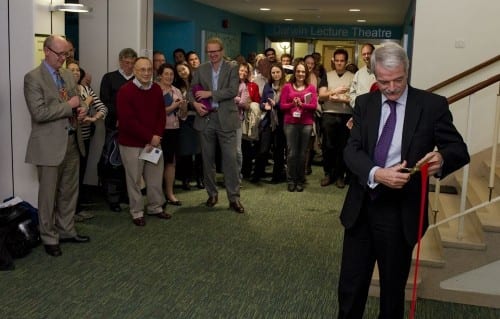The price of the pouch
By news editor, on 19 December 2011
Jack Ashby writes about the last UCL Lunch Hour Lecture of 2011, held on 8 December.
 Every zoologist has their own favourite group of animals, and mine is marsupials. However, this group sometimes suffer a lot of stick from the more common type of zoologist who studies placental mammals. They say marsupials are boring, stupid, primitive, too few in number and are altogether inferior to ‘normal’ mammals. I was hoping that the Lunch Hour Lecture by Anjali Goswami (UCL Genetics, Evolution and the Environment and UCL Earth Sciences) would set some of these accusations straight.
Every zoologist has their own favourite group of animals, and mine is marsupials. However, this group sometimes suffer a lot of stick from the more common type of zoologist who studies placental mammals. They say marsupials are boring, stupid, primitive, too few in number and are altogether inferior to ‘normal’ mammals. I was hoping that the Lunch Hour Lecture by Anjali Goswami (UCL Genetics, Evolution and the Environment and UCL Earth Sciences) would set some of these accusations straight.
Whenever I go to Australia to undertake ecological fieldwork I am struck by the diversity of the mammals there. You can travel 200km and find a different species of marsupial mouse doing a similar thing to the one you saw the day before, only in a slightly different environment. Go another 200km and you could find a third.
However, the three species do look pretty similar. One of the major downsides of marsupials, from a biodiversity point of view, is that they haven’t evolved the range of forms that placental mammals have. While there is a semi-aquatic species of marsupial – the yapok – it could hardly be compared with a whale or a seal; there are gliding marsupials too, but they can’t do what bats can do. Marsupials and placentals have both been evolving for the same length of time – 125 million years; why did flying, swimming or event galloping never arise in marsupials? Anjali put it down to methods of reproduction.
 Close
Close


